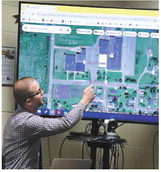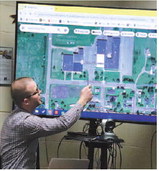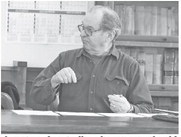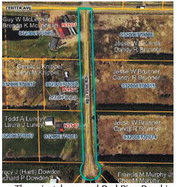Wage hike
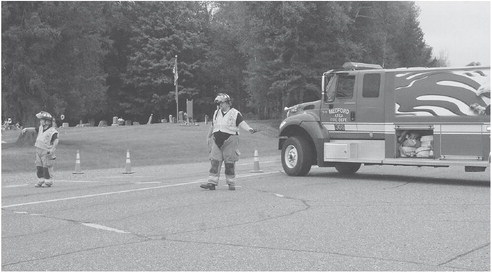

Medford firefighters see pay increase to keep up with starting factory wages
Medford firefighters will get a $3 per hour pay jump following action by the Medford Area Fire Commission on August 28.
Commission members voted to set the firefighter pay at $21 per hour for time they are on a call. In addition, the person assuming incident command, usually the chief or an assistant chief, will be paid $24 per hour. Firefighters only receive the hourly rate while on call. They receive a flat stipend for attending meetings and training.
Fire chief Mike Filas asked for the pay increase for the department personnel in order to reduce the impact on firefighters as they leave their workplace for calls. Filas noted that where he works at Nestlé Pizza, the starting rate is $21 an hour and that Marathon Cheese has a similar starting rate.
He said with the current pay of $18 per hour, firefighters are losing money whenever they respond to a call.
The change to the pay will also impact the amount the department bills out for labor expenses at fire and accident scenes. The current rate is billed at $20 per hour, which covers the department’s administrative and payroll expenses for billing out labor. Filas recommended billing out at $23 per hour.
“In my opinion it is fair, I would hate to go much more than that,” Filas said.
“I think it is reasonable,” said Stan Schmidt of the town of Medford. “If they are too dissatisfied with the rate, they won’t be here,” he said.
Filas noted that Medford, like other fire departments around the country, is seeing an unusual generational transi-
See MEDFORD on page 4 tion. He said there are a lot of people who don’t want to do it on call as a volunteer firefighter, but want it to be a career.
In other fee adjustments, commission members adjusted what is billed for equipment and other charges for different types of calls.
Currently the mutual aid calls to assist with other departments are not billed out. Filas suggested setting a rate for use of the aerial truck to compensate for the wear and tear on it. He noted that Medford has the only aerial truck in the region and it gets called to assist in other areas.
For structure and taxed property fires, the department bills only labor used on a per person, per hour basis. This is because the base costs of operating the department are carried by taxpayers in the fire district.
Rescue calls are currently charged out at $250 for the first hour and $150 for each hour after for trucks and then an hourly charge per firefighter on the scene. Filas noted that usually three trucks will respond to an accident or rescue scene. He said the truck charge remains the same no matter how many trucks respond. “It is a flat $250,” he said. Of that amount, Filas estimated that about $150 went to paying for the fuel for the trucks and equipment used at the scene.
In addition, consumables and equipment are charged as a cost to the department. He noted there are times when they might bring sand or have to bring in heavy equipment and the cost of that just gets billed back to those involved in the accident or rescue.
He noted that this is something the fire commission decides on. Filas also asked for the commission to consider an additional charge for carbon monoxide responses. He said they currently treat it like a structure or taxed property fire, but noted there are actually additional costs incurred by the department in verification and identification of where carbon monoxide leaks are coming from.
The department uses specialized sensors with the supplies for sensors running between $300 and $600 and the sensors themselves needing to be replaced every 8 years at a current price of $1,500.
Filas proposed having a $200 charge for carbon monoxide costs to help cover the additional cost of the metering devices. He noted that they are typically fairly short calls, but that they have had ones that took some time.
“I think we have to be careful how much over and above we charge,” Filas said.
Filas said that they also wanted to keep any charges simple to understand.
Part of the need to look at the rates is with the shifting nature of calls. He said the department does not handle as many fire calls as in the past, but is handling significantly more carbon monoxide calls and quite a few of the rescue-type calls.
Committee members supported the changes in firefighter wages and updates to the fees charged for calls. Filas will bring back a finalized fee schedule for the commission members to vote on at the December meeting.
Budget
Fire commission members approved the 2025 budget with a 5% increase in the truck replacement fund. Total expenditures for the district are budgeted to be $291,400. Of that amount, about $145,100 is directly charged back to the member municipalities.
Fire department expenses are spread between the eight municipalities that make up the fire commission based on their share of the equalized value set by the state each August. While the amount paid by the city versus the towns has shifted more toward the towns in recent years, this year’s budget sees the city paying about 36 % of the overall costs of the department budget compared to about 34% last year. At the same time, the town of Medford is going from picking up about 25% of the department expenses last year to about 23.7% this year.
In addition to the operating budget, the commission levies a set amount each year to go into a truck replacement fund. The goal is to have enough saved up in the fund to pay for a replacement truck about every five years. The challenge that Medford and other departments are facing is that the cost of new trucks has climbed dramatically even in comparison to the general rate of inflation.
In the proposed budget that was discussed in June, Filas had asked for a larger 9% increase, but this was reduced to a 5% increase after town representatives objected to having money from their limited municipal budgets tied up in equipment replacement versus at use in their town budgets.
“Anytime you spend big dollars it hurts. It really hurts when you don’t have the dollars to spend,” Schmidt said. He noted that no one was discounting the need to keep up with truck replacement, but that even with a 10% increase they would likely not have enough to purchase a new truck outright in five years without needing to do supplemental borrowing.
“It is easier to pay a little at a time,” said Clem Johnson of the city of Medford.
“We are spending other people’s money and try to do is as responsibly as we can,” Schmidt said.
In the end, commission members approved the budget with $145,100 from member contributions and $90,000 for the truck replacement fund.
Roof replacement
Commission members voted to authorize Filas to hire Kulp’s of Stratford at a cost of $87,701 to replace the fire hall roof, but also gave him the ability to negotiate with the company on the warranty and exact options. The roof was damaged in a hail storm last year and the department received $41,908 for the insurance claim. Filas said Kulp’s told him the roof replacement would be able to be done yet this fall. The remaining cost will come from a building maintenance account that was set up following the fire hall construction about 22 years ago.
Filas said there is a timeliness issue in getting the roof repaired because it is leaking and causing damage to equipment in the apparatus bay. “We have lost two garage door openers because of leaking,” he said.

